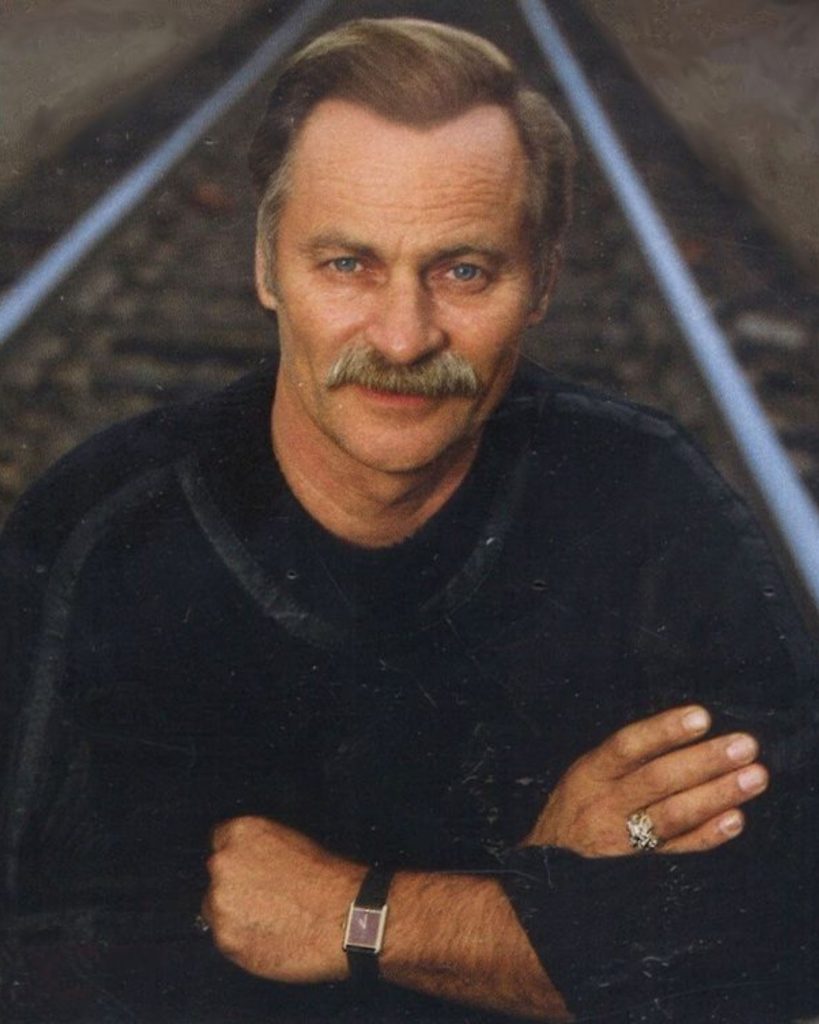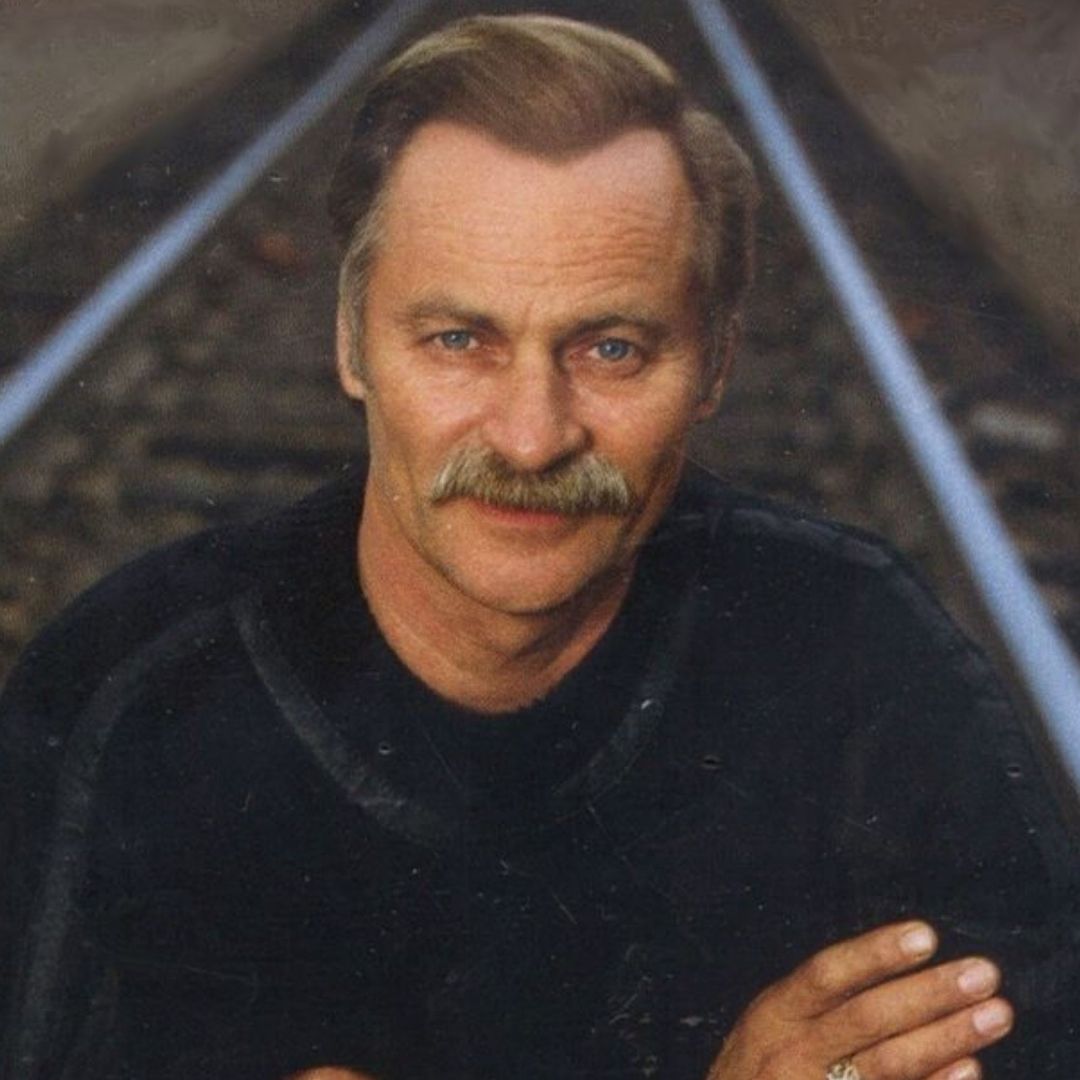
Introduction
There’s something powerfully timeless about a song that captures the end of a relationship with quiet resignation rather than fiery anger. That Just About Does It, sung by the legendary Vern Gosdin, is one of those songs. It resonates with anyone who’s felt the sadness of watching love slip away and is a hallmark of Gosdin’s ability to bring raw, relatable emotion into his music. The song is simple yet haunting, drawing listeners in with its stark honesty, making it feel like a conversation with an old friend who understands heartbreak just as much as you do.
About The Composition
- Title: That Just About Does It
- Composer: Vern Gosdin, with songwriting contributions from Max D. Barnes and Larry Barnes
- Premiere Date: 1989
- Album/Opus/Collection: Alone
- Genre: Country (Honky-Tonk Ballad)
Background
The song That Just About Does It was released in 1989 as part of Vern Gosdin’s album Alone, which showcases some of his most soul-stirring works. Co-written by Gosdin and the Barnes brothers, the song is a perfect example of Gosdin’s approach to country music—a mixture of vulnerability, wisdom, and undeniable authenticity. Known as “The Voice,” Gosdin had a rare talent for singing songs that felt intensely personal, drawing from the traditions of classic country to evoke emotions as deeply as any artist of his time. This song, in particular, was well-received, cementing Gosdin’s reputation as a master of the heartache ballad and solidifying its place as a poignant entry in his repertoire.
Musical Style
That Just About Does It is a slow, melancholy ballad driven by traditional country instrumentation, including soft acoustic guitar, subtle drums, and a gentle steel guitar that weaves in and out, echoing the bittersweet tone of Gosdin’s voice. The arrangement is sparse, emphasizing Gosdin’s vocal delivery. The simplicity of the instrumentation allows the song’s raw emotion to take center stage, with Gosdin’s baritone delivering each line as though he’s living it. The pace is deliberate, capturing the feeling of someone who has reached the end of a long and painful journey, reflecting on the inevitable close of a relationship.
Lyrics
The lyrics of That Just About Does It paint a picture of resignation and quiet acceptance. Gosdin’s delivery of lines like, “Don’t you think it’s time / We call it a day?” captures the heartbreak of two people realizing that their love, despite its depth, has run its course. Unlike songs that rage against the dying of love, this song gently lets go, acknowledging the pain but also the futility in trying to hold on. The lyrics explore themes of emotional exhaustion, lost love, and acceptance, all delivered with a simplicity that allows the universal experience of heartbreak to resonate deeply.
Performance History
Since its release, That Just About Does It has been performed by Gosdin in various live settings, each time bringing audiences to a reflective silence. Known for his heartfelt performances, Gosdin’s live renditions emphasized his raw vocal power, often leaving listeners in awe of his ability to channel such vulnerability. The song quickly became a fan favorite, especially among those who appreciate the more introspective side of country music. It’s been covered by several artists in tribute, with each rendition carrying the same quiet sorrow that Gosdin mastered in the original.
Cultural Impact
That Just About Does It became a significant piece in the country music landscape for its ability to touch listeners across generations. The song has been used in various media settings, often in contexts that seek to underscore emotional reflection or loss. It remains a staple for classic country radio and is frequently listed among Gosdin’s most impactful songs, praised for its straightforward approach to themes of love and heartbreak. This song, along with other works by Gosdin, influenced later country artists who admired his ability to convey the “hurtin’ song” in a way that felt authentic and timeless.
Legacy
The legacy of That Just About Does It lives on in its ongoing relevance to anyone who’s experienced the melancholy end of a relationship. The song remains a testament to Gosdin’s unmatched ability to connect with listeners through his music. Younger generations continue to discover it, often remarking on how contemporary it feels, despite its release over three decades ago. The song’s endurance is a testament to its universal theme and Gosdin’s soulful delivery, which ensure that it remains a cornerstone in the genre’s exploration of love and loss.
Conclusion
That Just About Does It is more than just a song—it’s a quiet companion for those enduring heartache, a gentle reminder that they’re not alone. If you haven’t yet experienced this song, it’s worth finding a quiet moment to sit and listen to Gosdin’s tender, haunting voice. For a particularly moving rendition, seek out Gosdin’s original recording on Alone, or any of his live performances. This song, like all of Gosdin’s music, is an invitation to feel deeply, to reflect on love’s fragile nature, and to find solace in the shared experience of heartache
Video
Lyrics
Every night you go to bed crying
There’s nothing left to do when love is dying
So before the whole world knows, how we’re hurting
Don’t you think it’s time we pull the curtains’
So many times, I talked you out of leaving
And so many times you’ve tried to fight the feeling
I guess we’ve tried and failed once too often
Now the suitcase down the hallway does the talking
That just about does it, don’t it
That’ll just about kill it, won’t it
Maybe we should call a truce
We could but what’s the use
That just about does it, don’t it
It’s sad to think that words could come between us
And what I said, God knows I didn’t mean it
It’s time we realize this time it’s over
It’s tearing us apart to stay together
And that just about does it, don’t it
That’ll just about kill it, won’t it
Maybe we should call a truce
We could, but what’s the use
That just about does it, don’t it
Maybe we should call a truce
We could, but what’s the use
That just about does it, don’t it, don’t it
